Whether you are designing a new, innovative program or service from scratch or implementing an existing program or service, it’s important to use effective methods—or evidence-based approaches (or, science-based, research-based)—to ensure you reach your desired outcomes. A step-by-step systematic framework can help you no matter what stage you are in, be it design, planning, development, research, implementation, evaluation, or sustaining. For Healthy Teen Network, an important component of this step-by-step framework is also to apply a human-centered approach.
Notice: Undefined index: desc in /var/www/html/wp-content/themes/JointsWP-CSS-master/tag.php on line 36
Notice: Undefined index: asc in /var/www/html/wp-content/themes/JointsWP-CSS-master/tag.php on line 38
Sort By Date |
Sort By Title
January 14, 2015
I ♥ GTO® (otherwise known as Getting to Outcomes®). Now, I’m not about to plan my vacation using GTO like Mary Martha Wilson has suggested, nor am I going to sing about my little GTO, like Abe Wandersman…but still, I love GTO . I’m often the first among our staff to suggest GTO as the…
Read moreTool: Program Fit
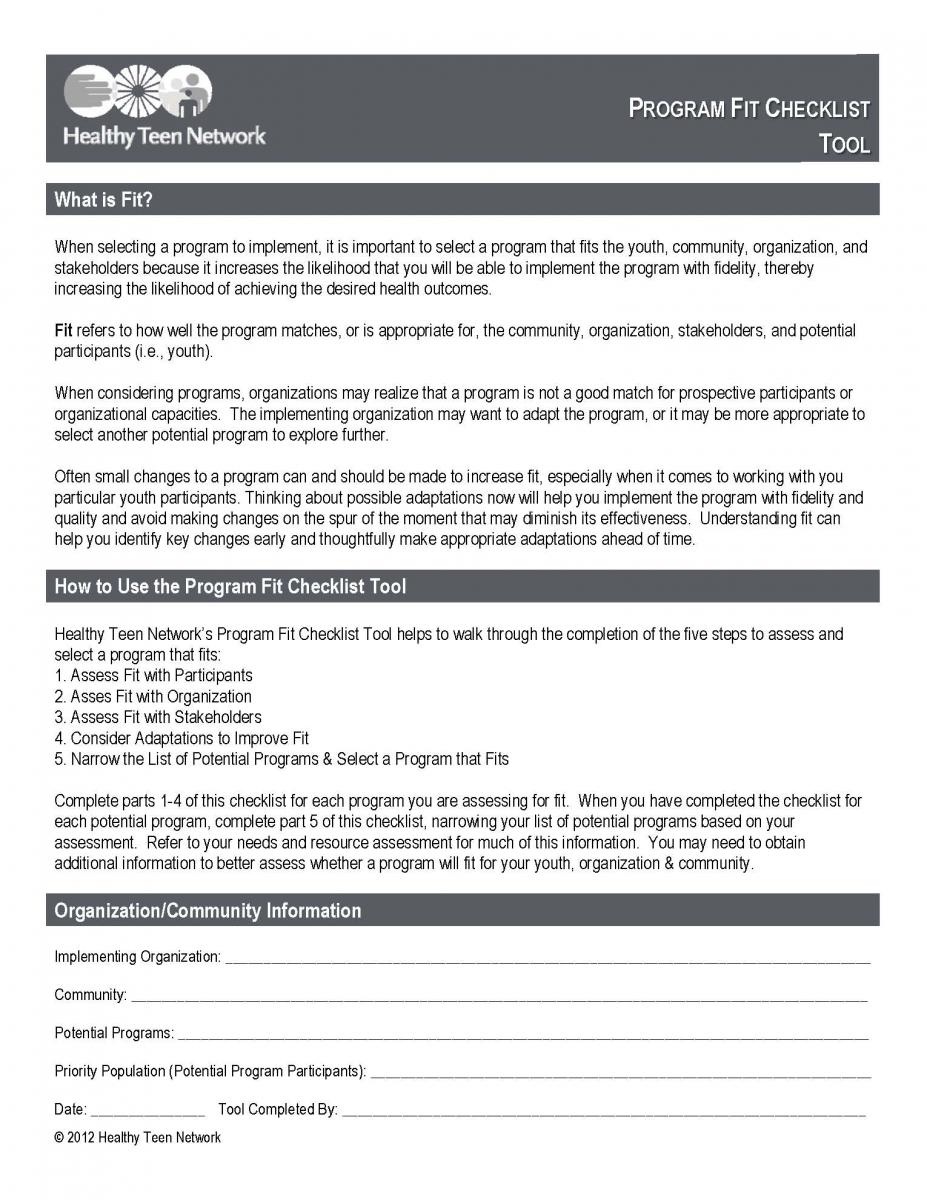
Fit refers to how well the program matches, or is appropriate for, the community, organization, stakeholders, and potential participants (i.e., youth). This tool supports assessing programs for fit. Read more about fit in the Evidence-Based Resource Center.
Read moreTip Sheet: Best Practices for Working with Pregnant and Parenting Teens
January 12, 2015
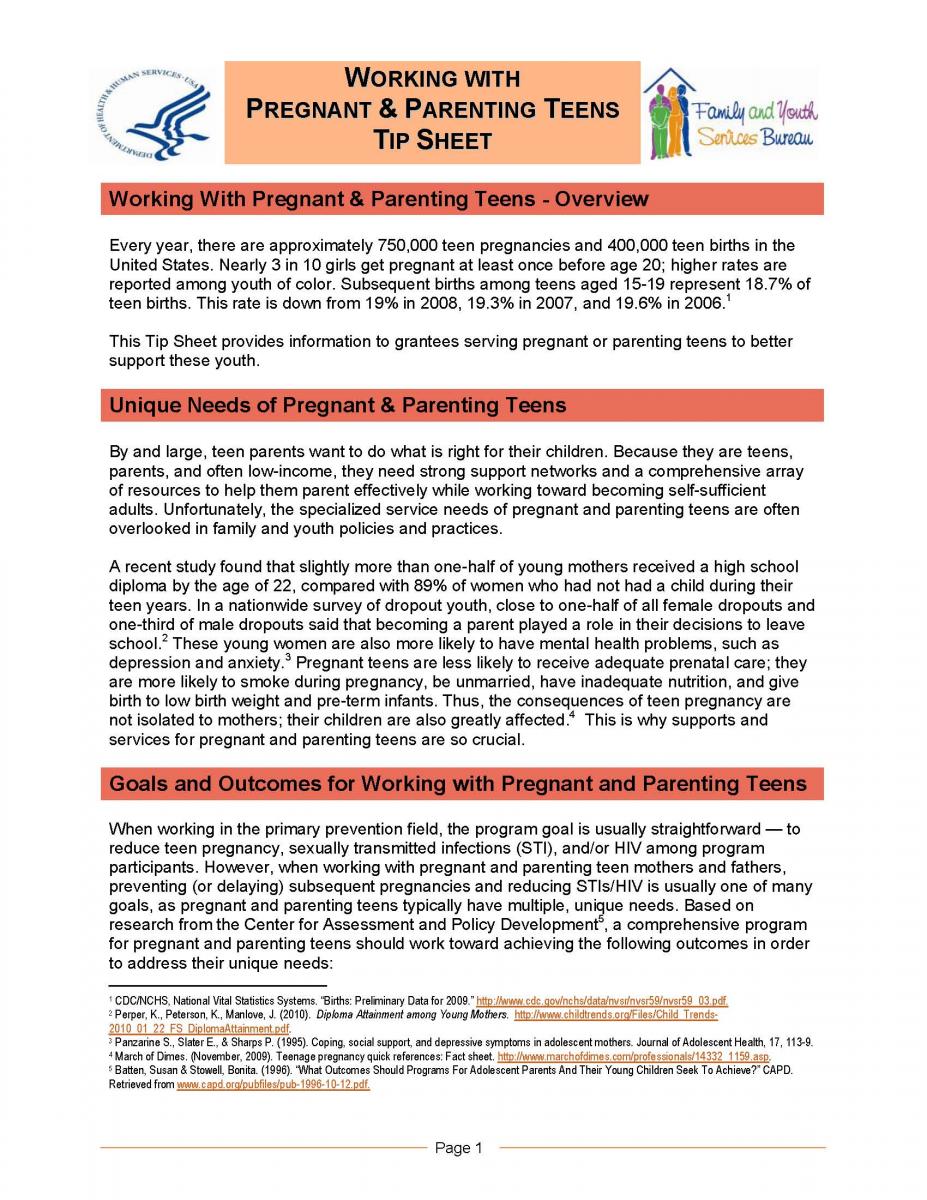
By and large, teen parents want to do what is right for their children. Because they are teens, parents, and often low-income, they need strong support networks and a comprehensive array of resources to help them parent effectively while working toward becoming self-sufficient adults. This tip sheet provides information to better support these young people.
Read moreTip Sheet: Continuous Quality Improvement (CQI)
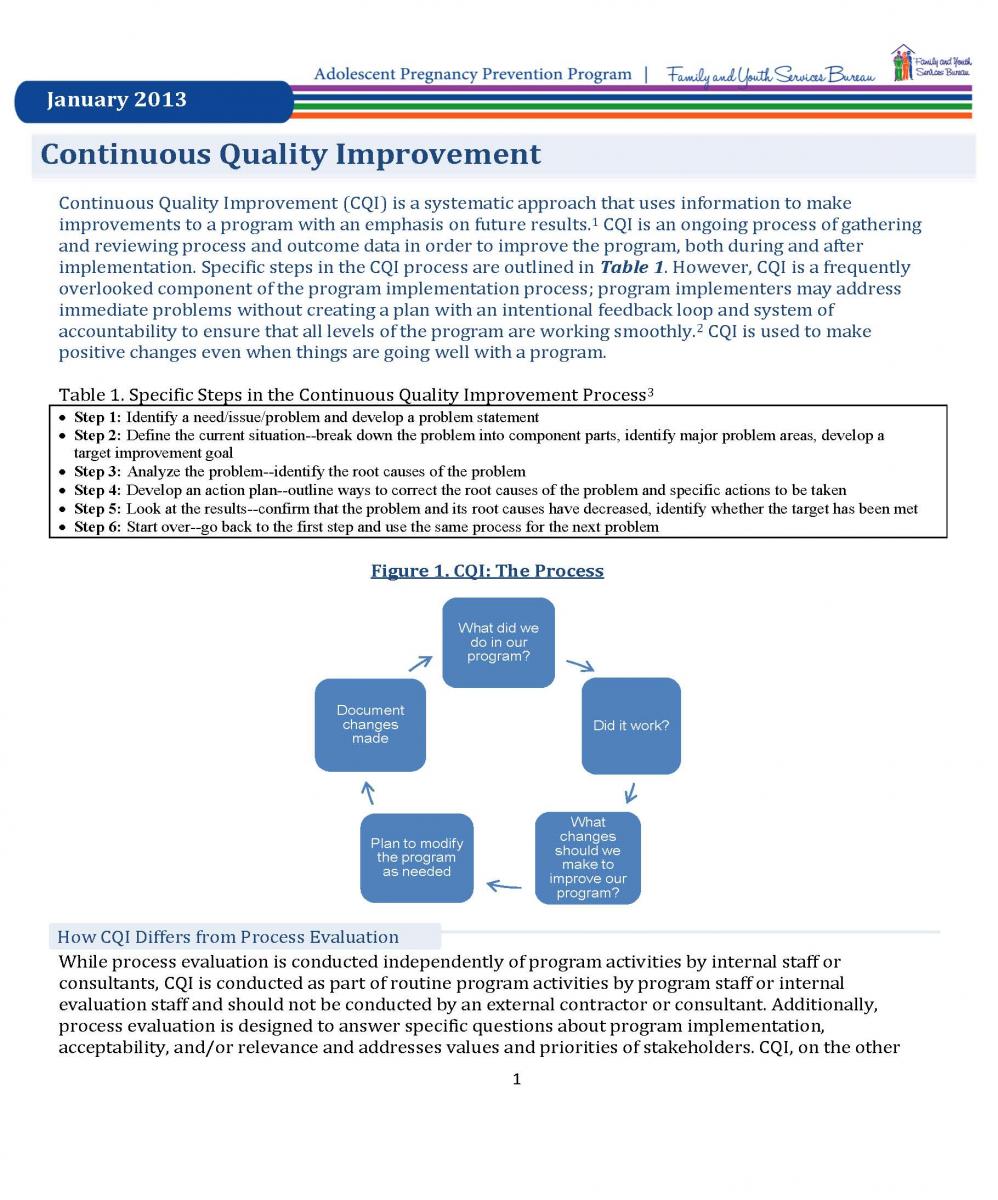
Continuous Quality Improvement (CQI) is a systematic approach that uses information to make improvements to a program with an emphasis on future results. CQI is an ongoing process of gathering and reviewing process and outcome data in order to improve the program, both during and after implementation.
Read moreTip Sheet: Built to Last: Planning Programmatic Sustainability
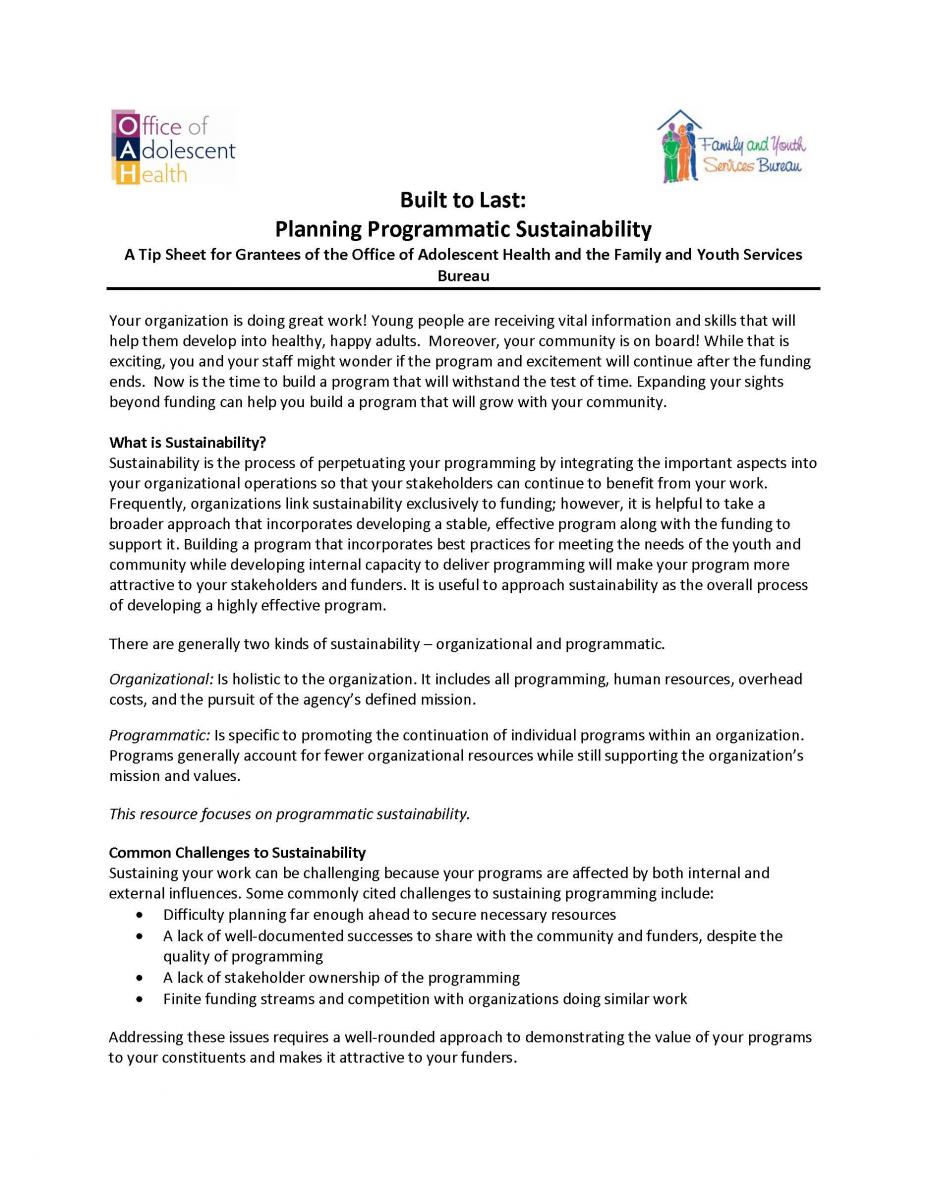
Your organization is doing great work: youth are receiving vital information and skills that will help them develop into healthy, happy adults, and your community is on board! Now is the time to build a program that will withstand the test of time. Expanding your sights beyond funding can help you build a program that will grow…
Read moreTip Sheet: Best Practices for Community Engagement
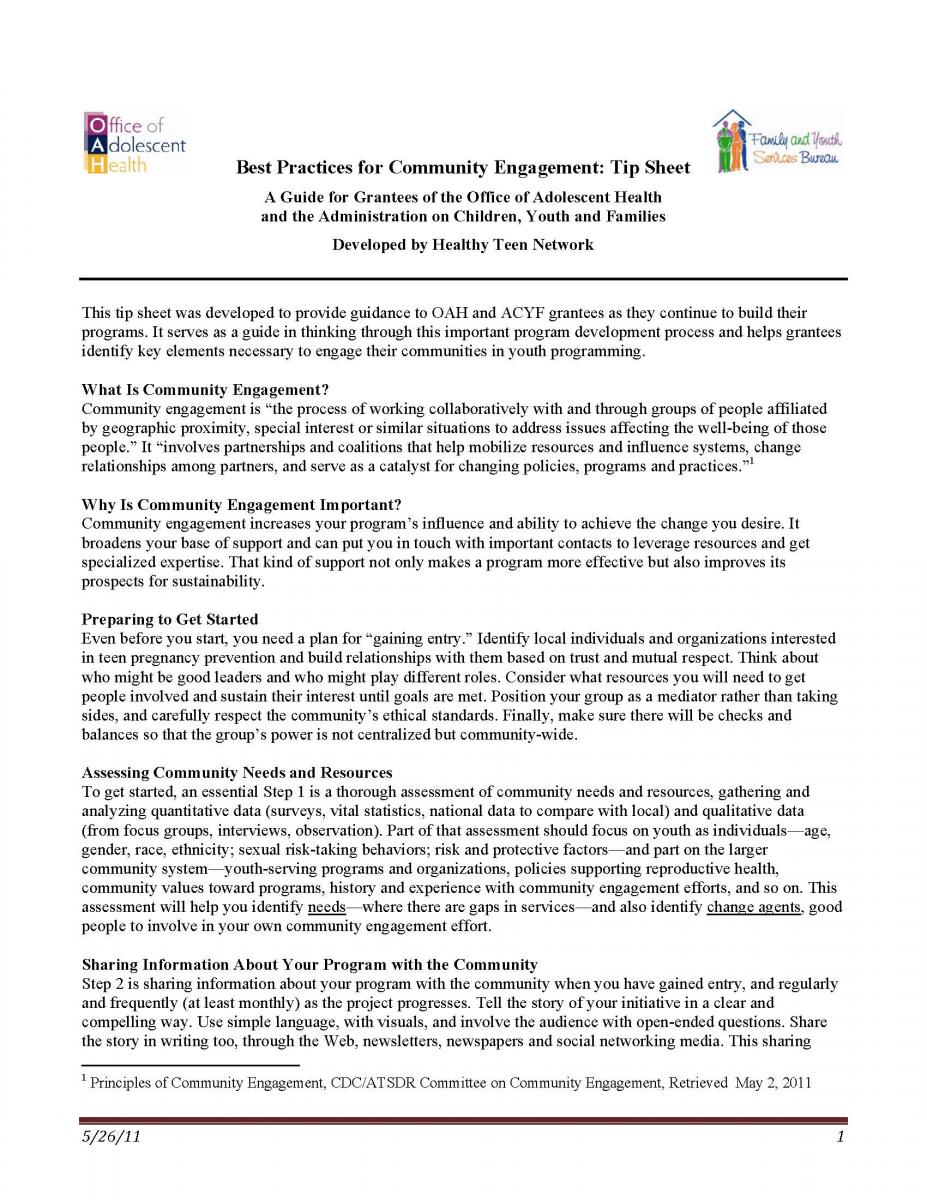
This tip sheet serves as a guide in thinking through building community engagement and helps to identify key elements necessary to engage communities in youth programming.
Read moreTip Sheet: Best Practices for Conducting a Needs and Resource Assessment
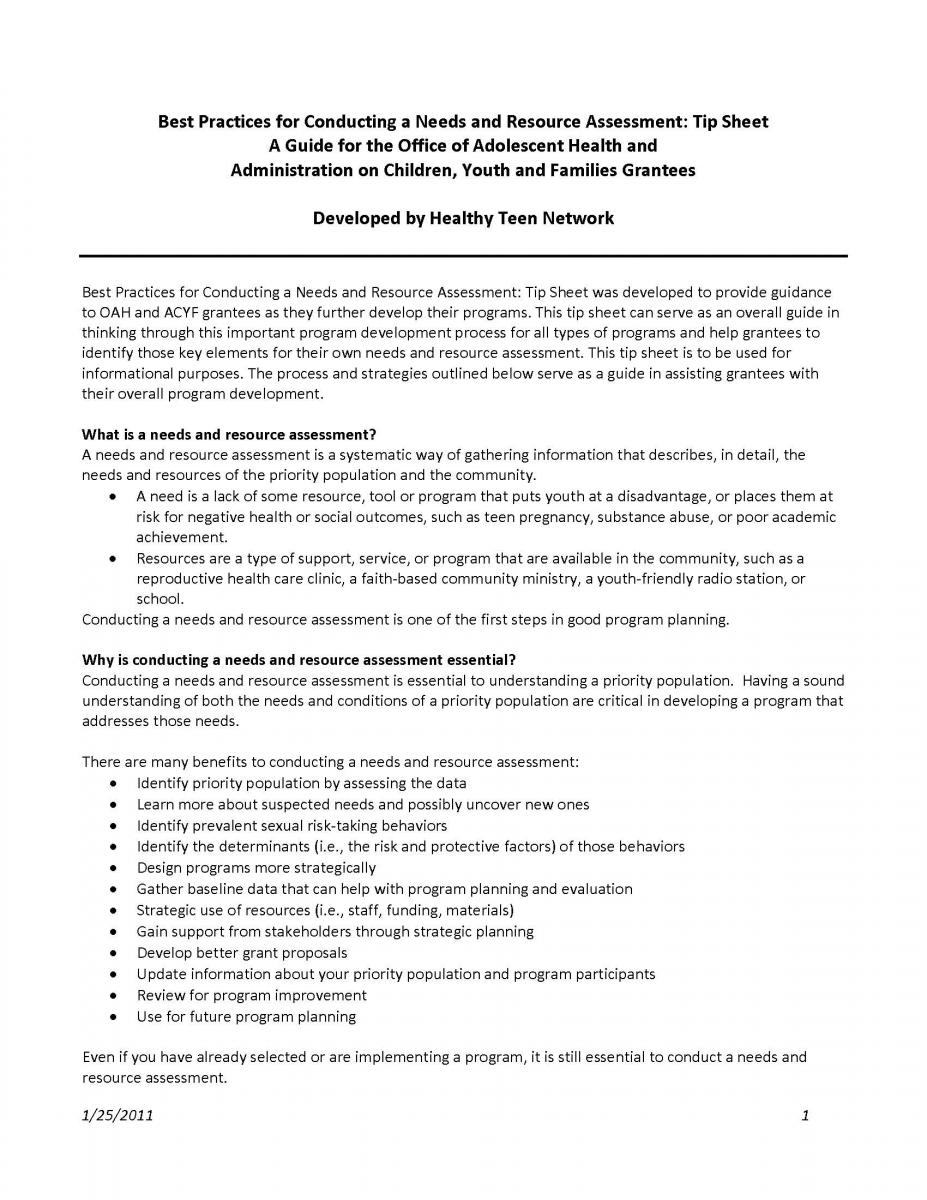
This tip sheet can serve as an overall guide in thinking through the important program development process of conducting a needs and resource assessment for all types of programs.
Read moreShow Me the Money: Guide to Developing a Winning Grant Proposal
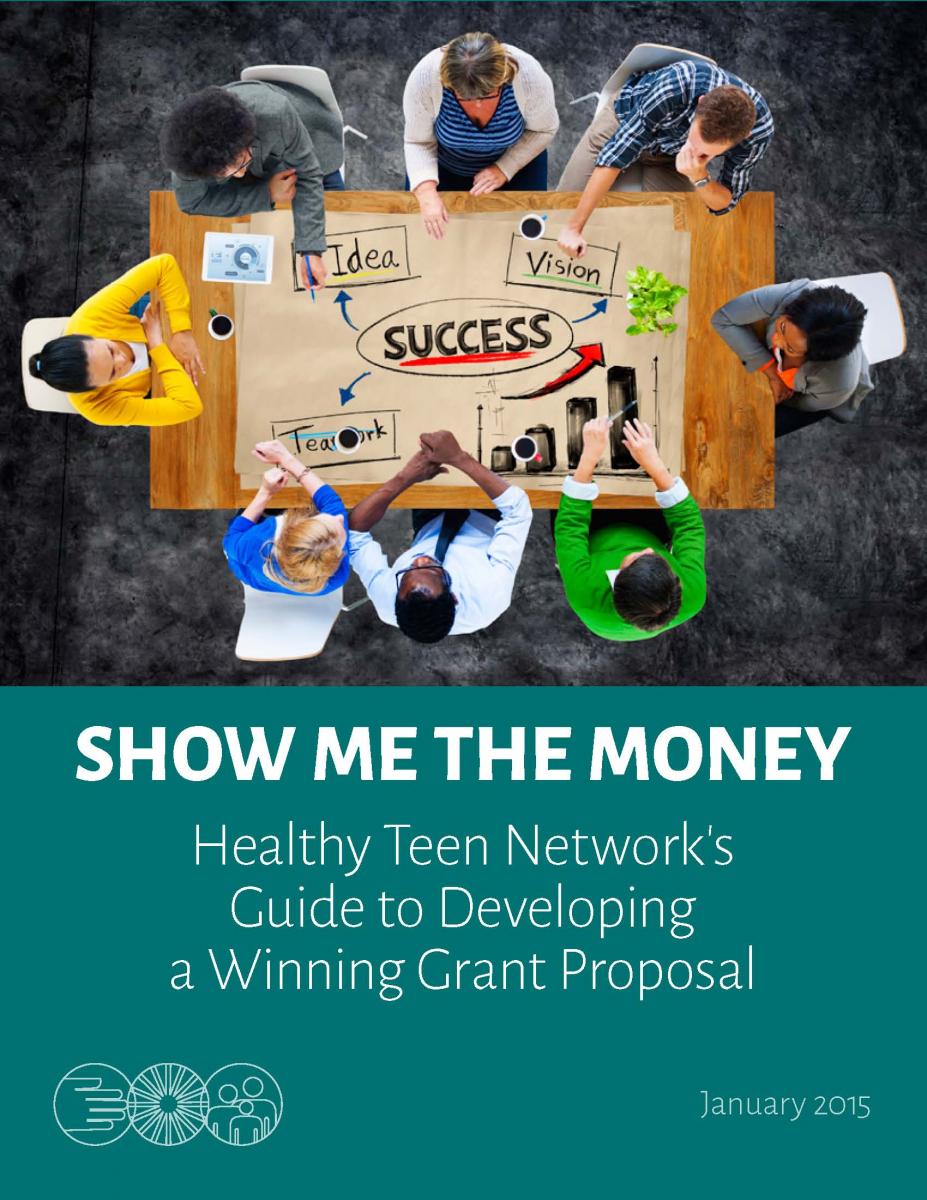
Healthy Teen Network has a record of success in securing grants and cooperative agreements, especially in the topical area of adolescent sexual and reproductive health and the service area of capacity-building assistance. We believe that sharing the process we use to prepare our responses to program funding announcements is a useful capacity-building activity for nonprofit and…
Read moreNo te compliques! Conectando a adolescentes con servicios de salud sexual
January 6, 2015
_cover.jpg)
The ¡No te compliques! Facilitator’s Guide and accompanying video, or motion graphic, are designed to help link young men and women, ages 15-19, to trusted, “teen friendly” contraceptive and reproductive healthcare providers. Facilitator’s Guide and motion graphic are also available in English.
Read moreTool: Instructor Competency Assessment
November 19, 2014
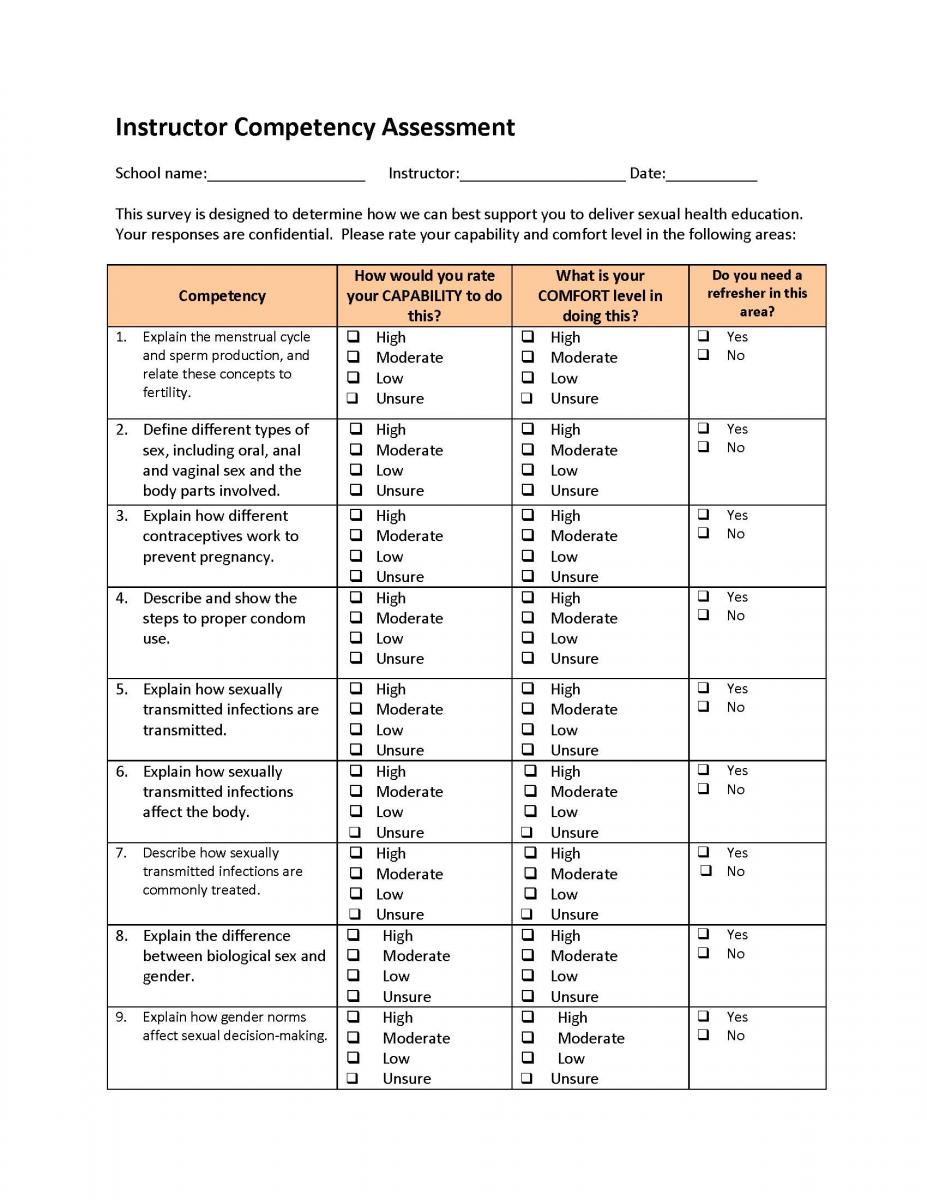
The Instructor Competency Assessment Tool is a needs-assessment instrument designed to help you plan professional development (PD) for instructors teaching sexuality education. The tool summarizes key competencies instructors need, and asks them to rate their comfort and capability within each competency. Click here to download the tool in Word format so that you can modify it…
Read more
